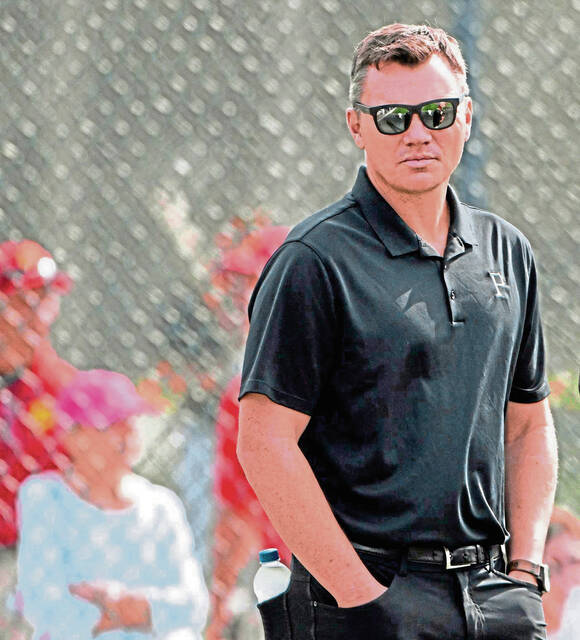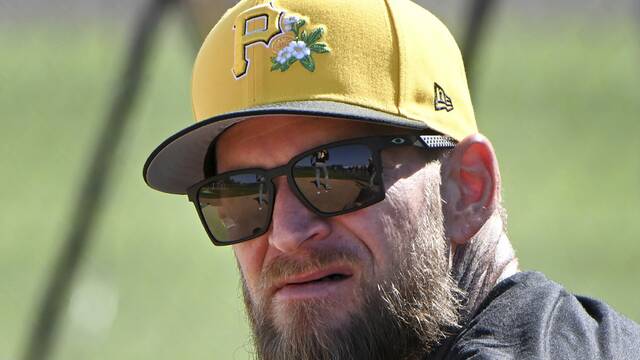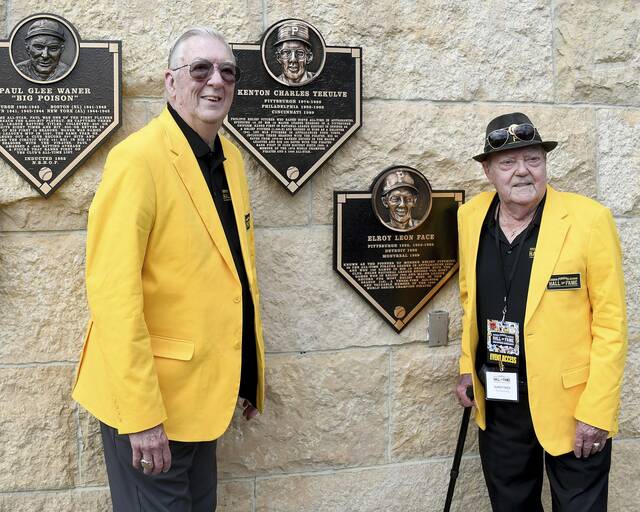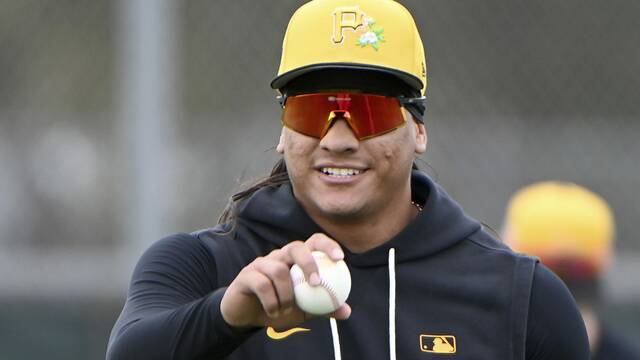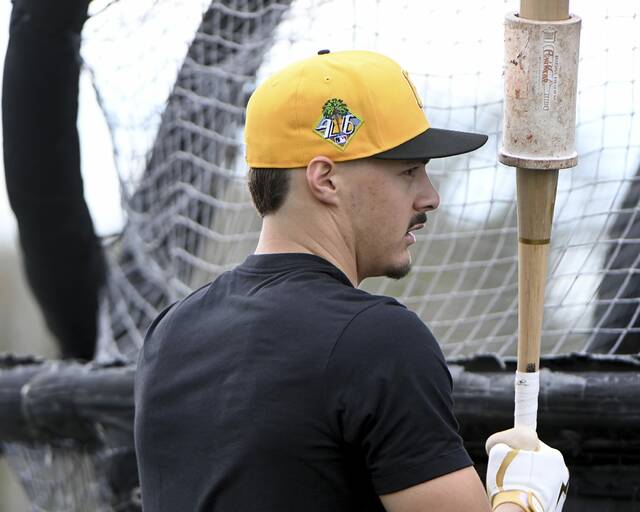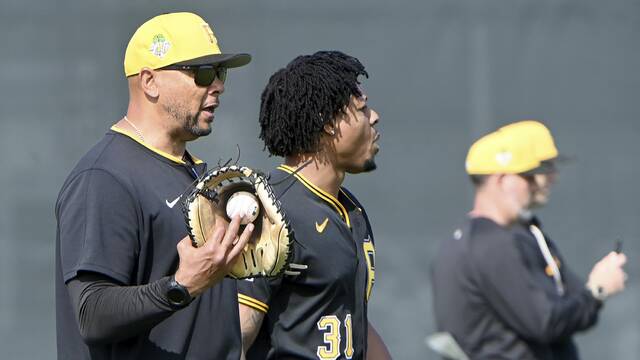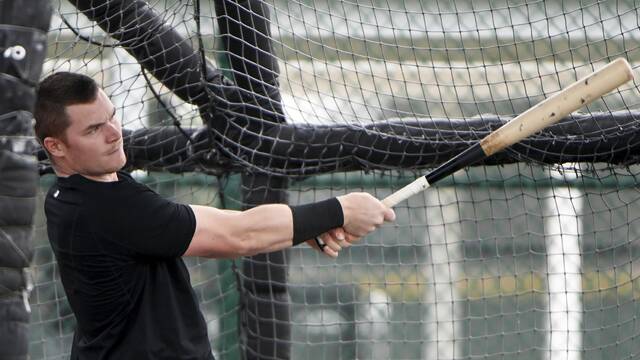If you spent any time in the Pittsburgh sports Twittersphere last Friday, you saw a lot of chatter about the eighth anniversary of the 2013 National League Wild Card Game.
The Pirates’ first postseason game in Pittsburgh since 1992. PNC Park. Blackout. Johnny Cueto drops the ball on the pitcher’s mound. You know the rest.
Russell Martin hits a home run off Johnny Cueto during the 2013 National League Wild Card Game between the Pirates and Cincinnati Reds at PNC Park on October 1, 2013 pic.twitter.com/CMsSFtY2Wt
— Pittsburgh Pirates History (@HistoryPirates) October 1, 2021
In historical terms, eight years shouldn’t feel so distant for this long-depressed Pittsburgh fan base. It’s a blip. A sliver of time. A nanosecond in the grand scheme of the collective suffering.
Especially since the team made the postseason in each of the next two years as well.
After all, it’s been 29 years since the franchise’s last divisional championship. It’s been 42 years since the last National League title and World Series crown. Six years without a wild card berth should feel like nothing compared to the 20 years of sub-.500 baseball we all endured from 1993 through 2012.
But the quickness and the depth with which the franchise has sunk back to that pre-2013 rhythm of losing and non-competitive baseball on the big league level has been jarring. In fact, it feels like the organization never escaped it in the first place.
After a 101-loss campaign this year, the concept of ever recreating an event like that October evening in 2013 seems incomprehensible.
On Tuesday, Pirates general manager Ben Cherington held a season-ending press conference. I asked him what fans and media members should use as signs of progress at the major league level in 2022.
Is it an improvement in the win-loss record? Their place in the final National League Central standings? Proximity to a playoff spot?
What followed was a 2 ½ minute response from Cherington that essentially said, “Nah! None of that piddly ‘results’ stuff.” Instead, improvement at the major league level will be measured by overall organizational growth.
“We need to stay laser focused on improvement throughout the operation,” Cherington said. “The major league team as it relates to the roster. Continuing to make the roster deeper. How we play. How we practice. How we improve at the major league level. How we share information. But it needs to be everywhere else, too. … Amateur, pro.
“So it’s improvement throughout the organization. That’s where we would be focused … And if we do that, and we do that well enough over time, that will show up in outcomes at the major league level.”
OK. When? When are results allowed to matter? Four more years? Three? When are wins and losses in the majors supposed to be treated as something more than a footnote?
And how is the franchise supposed to keep fans in Pittsburgh interested enough to go through the gate at PNC Park when we are constantly being told the alleged important stuff is happening in Altoona and Greensboro.
At some point fans in Pittsburgh should be allowed to say, “I don’t care about what’s happening in North Carolina, I care about what’s happening on the North Shore.”
Not only are the Pirates behind when it comes to possessing and retaining major league talent, but they are also behind when it comes to the ability and willingness to spend to acquire it.
Of the 10 teams that qualified for the MLB postseason, six are in the top 10 of major league payrolls. According to Spotrac, only two have payrolls below their posted league average of $130 million. The Milwaukee Brewers are at $102 million (19th in the league). The Tampa Bay Rays stand at $70 million (26th in the league).
The Pirates are 28th in the league with a $54 million payroll, with an actual “cash spent” total of $52 million for 2021. That was the lowest in MLB for the year.
Unless owner Bob Nutting has a Scrooge McDuck-esque spending epiphany this winter, that economic disparity is unlikely to change. So how can Cherington attempt to reach those goals in 2022 without any quick-fix cash?
“We’ll have things we can do this offseason as it relates to acquiring players through free agency or trade. We have a rough idea where we sit now and what that means in terms of the room we have to work in,” Cherington said.
Room? What “room”? There’s no salary cap. No one is expecting the Pirates to blow through the $210 million luxury tax. So the “room” is the franchise’s own budget threshold for the Major League Baseball payroll.
Which brings us back to square one.
Yet Cherington went on to say that, since he was hired, anything his office has needed in terms of support from ownership has been there. So I guess Cherington hasn’t deemed a useful right fielder or capable pitching staff all that necessary yet.
Even if he wanted more MLB caliber help, though, Cherington says the priority would be about finding players who would help beyond 2022.
“Everything would go back to, ‘Does this make sense to get us closer to sustainable winning?’ If it does, then we’ll pursue that,” Cherington said. “If it doesn’t, then we’ve got to be disciplined not to do it.”
And there’s the out. Not pursuing veteran talent because paying seasoned players with a history of success at the MLB level doesn’t guarantee long-term, “sustainable” winning. But pinning blind faith on presumptions over draft picks who are five years away from the major leagues is secure.
That’s a neat trick.
Maybe fans should stop letting Pirates management get away with it.
Then again, based on the lack of attendance by the end of the season, maybe they already have.


